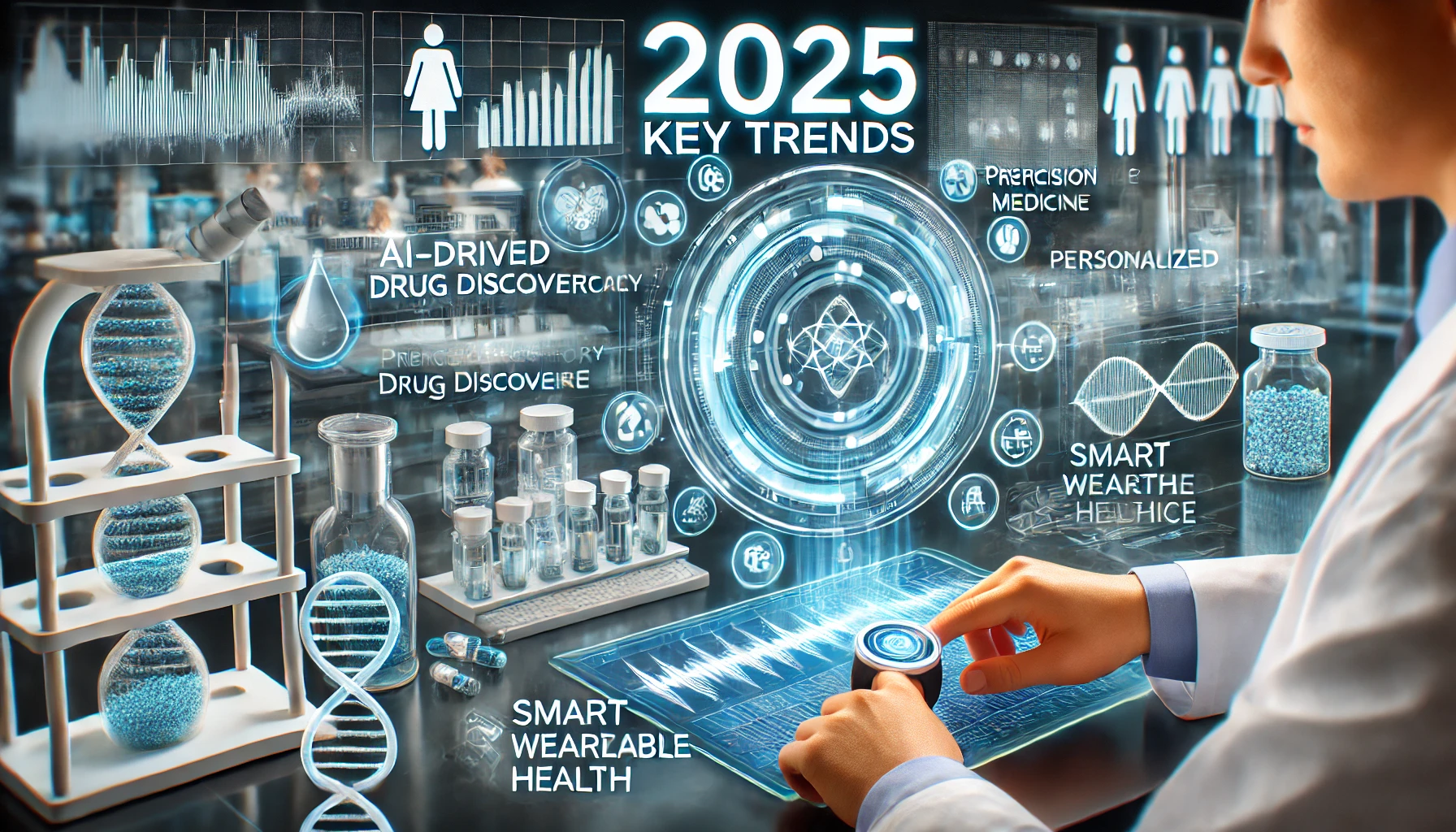
The pharmaceutical industry is changing rapidly, and API manufacturing in 2025 is at the heart of this transformation. Active Pharmaceutical Ingredients (APIs) are the core components of medicines, and their production process is evolving to meet new demands in efficiency, sustainability, and technological advancements.
This blog explores the key trends, challenges, and innovations shaping the API manufacturing industry in 2025, providing insights into what’s next for pharmaceutical companies, manufacturers, and healthcare providers.
What is API Manufacturing?
API manufacturing refers to the process of producing the active ingredients in pharmaceuticals that create the intended therapeutic effect. The process involves:
- Chemical Synthesis Creating small-molecule APIs through complex chemical reactions.
- Biotechnology Producing biologic APIs using living organisms.
- Fermentation Using microbial processes to create antibiotics and other APIs.
- Isolation and Purification Extracting and refining APIs to ensure high potency and purity.
The global API manufacturing industry is adapting to new market needs, regulatory pressures, and technological advancements. So, what are the major trends influencing API manufacturing in 2025?
Explore a leading manufacturer of APIs.
With over 10 years of expertise, we ensure GMP compliance and provide reliable, high-quality solutions.
Top Trends in API Manufacturing in 2025
1. Shift Towards Continuous Manufacturing
Traditional batch processing is being replaced by continuous manufacturing, a method that offers:
- Greater efficiency APIs can be produced without interruptions, reducing downtime.
- Lower production costs Reduces material waste and improves yield.
- Higher quality control Real-time monitoring ensures consistency and safety.
Pharmaceutical giants like Chemignition Laboratory, Pfizer and Novartis have already integrated continuous manufacturing to speed up production and maintain stringent quality standards.
Why It Matters:
Continuous manufacturing shortens production cycles, reduces manufacturing costs, and ensures faster time-to-market for essential drugs.
2. The Rise of Artificial Intelligence (AI) in API Manufacturing
AI and machine learning are being used to improve efficiency, predict failures, and optimize processes. In 2025, we expect:
- AI-driven quality control Automated inspections reduce human errors.
- Predictive analytics for supply chains Avoids delays in raw material procurement.
- AI-powered drug discovery Accelerates new API formulation.
Why It Matters:
AI-driven smart factories will reduce waste, optimize resources, and improve compliance with regulatory requirements.
3. Green Chemistry & Sustainable Manufacturing
Sustainability is a priority in API production, with companies implementing green chemistry principles. This includes:
- Solvent recovery and recycling Reducing hazardous waste.
- Biocatalysis Using enzymes to replace harmful chemical reactions.
- Energy-efficient manufacturing Switching to renewable energy sources.
Pharmaceutical companies like Chemignition Laboratory, Alivus Life Sciences and Merck are investing in eco-friendly production methods to reduce carbon footprints.
Why It Matters:
Sustainable API production aligns with global regulations and consumer expectations while reducing manufacturing costs.
4. Growth in Biologics and Biosimilars
The demand for biologics and biosimilars is surging. These APIs are used in advanced treatments for:
- Cancer
- Autoimmune diseases
- Rare genetic disorders
By 2025, biosimilars (cheaper versions of biologic drugs) will dominate the market due to:
- Cost-effectiveness Offering more affordable alternatives to expensive biologics.
- Regulatory push Governments supporting biosimilars to reduce healthcare costs.
- Patient demand Increasing global access to advanced treatments.
Why It Matters:
The shift toward biologics and biosimilars will drive API manufacturers to invest in new biomanufacturing technologies.
5. Precision Medicine & Personalized APIs
Precision medicine focuses on tailoring treatments to individual patients based on genetics, lifestyle, and environment. API manufacturing is adapting by:
- Producing small-batch APIs for rare diseases.
- Customizing drug formulations based on patient needs.
- Advancing pharmacogenomics to predict drug responses.
Companies like Moderna and Roche are already working on personalized medicine solutions, signaling a major shift in pharmaceutical manufacturing.
Why It Matters:
Personalized APIs will improve treatment effectiveness while minimizing side effects, leading to better patient outcomes.
Challenges in API Manufacturing in 2025
Despite rapid advancements, the API industry faces several challenges:
1. Regulatory Compliance & Quality Standards
Governments and agencies like FDA and EMA impose strict regulations on API production. Compliance issues can result in:
- Delays in drug approvals
- Product recalls
- Financial penalties
Solution: Implementing AI-driven regulatory monitoring systems ensures companies meet compliance requirements in real time.
2. Supply Chain Disruptions
API supply chains are fragile, as seen during the COVID-19 pandemic. Risks include:
- Raw material shortages due to geopolitical tensions.
- Dependency on China and India for API production.
- Shipping delays and rising costs.
Solution: Regionalizing API production and adopting on-demand manufacturing can strengthen supply chains.
3. High Production Costs
API manufacturing requires substantial investment in:
- Research & Development
- Advanced technology
- Workforce training
Solution: Outsourcing to contract manufacturing organizations (CMOs) helps pharmaceutical companies reduce costs while maintaining production efficiency.
The Future of API Manufacturing: What’s Next?
As the pharmaceutical industry moves forward, API manufacturing will continue to evolve in several ways:
1. 3D Printing of APIs
Innovations in 3D-printed pharmaceuticals could enable on-demand production of personalized medicines. This technology allows:
- Custom dosages tailored to patient needs.
- Faster drug delivery for clinical trials.
- Localized manufacturing at hospitals and pharmacies.
Companies like Aprecia Pharmaceuticals are already pioneering 3D-printed drugs, paving the way for customized medication solutions.
2. Blockchain for API Traceability
Blockchain technology is being integrated into API supply chains for:
- Enhanced drug traceability Prevents counterfeit medications.
- Regulatory transparency Simplifies compliance reporting.
- Secure transactions Reduces fraud in pharmaceutical trade.
With blockchain, every API batch can be tracked from production to patient, ensuring quality and authenticity.
3. Smart API Factories
The future of API manufacturing lies in fully automated smart factories equipped with:
- AI-driven production monitoring
- Robotics for precise API synthesis
- Real-time data analytics for predictive maintenance
These innovations will help manufacturers meet the growing demand for high-quality APIs at reduced costs.
Final Thoughts
API manufacturing in 2025 is transforming with continuous production, AI integration, sustainability efforts, and personalized medicine. However, companies must navigate regulatory challenges, supply chain risks, and production costs to stay competitive.
The future of API production will be shaped by smart technologies, blockchain security, and 3D-printed drugs, bringing a new era of efficiency and accessibility in pharmaceuticals.
As API manufacturers adapt to these changes, the industry will witness faster drug production, cost-effective manufacturing, and improved patient-centric treatments. Staying ahead in this evolving market requires embracing innovation, sustainability, and technological advancements.
FAQs
What are the major trends in API manufacturing in 2025?
The major trends in API manufacturing in 2025 include:
- Continuous manufacturing for improved efficiency and cost reduction
- Artificial Intelligence (AI) integration for quality control and supply chain optimization
- Green chemistry and sustainable practices to reduce environmental impact
- Increased production of biologics and biosimilars for advanced treatments
- Precision medicine and personalized APIs for targeted therapies
How is AI impacting API manufacturing?
AI is transforming API manufacturing by enhancing quality control, optimizing supply chain management, predicting equipment failures, and accelerating drug discovery. AI-driven smart factories improve efficiency, reduce waste, and ensure compliance with regulatory standards.
What is continuous manufacturing in API production?
Continuous manufacturing is a modern approach where APIs are produced in a streamlined, uninterrupted process instead of traditional batch manufacturing. This method increases efficiency, reduces waste, lowers costs, and improves product consistency.
Why is sustainability important in API manufacturing?
Sustainability in API manufacturing helps reduce carbon footprints, minimize hazardous waste, and optimize energy consumption. Green chemistry principles, solvent recovery, and biocatalysis are being adopted to make API production more environmentally friendly.
What challenges does API manufacturing face in 2025?
API manufacturing faces challenges such as:
- Strict regulatory compliance and quality control requirements
- Supply chain disruptions due to geopolitical tensions and raw material shortages
- High production costs requiring substantial investments in technology and R&D



